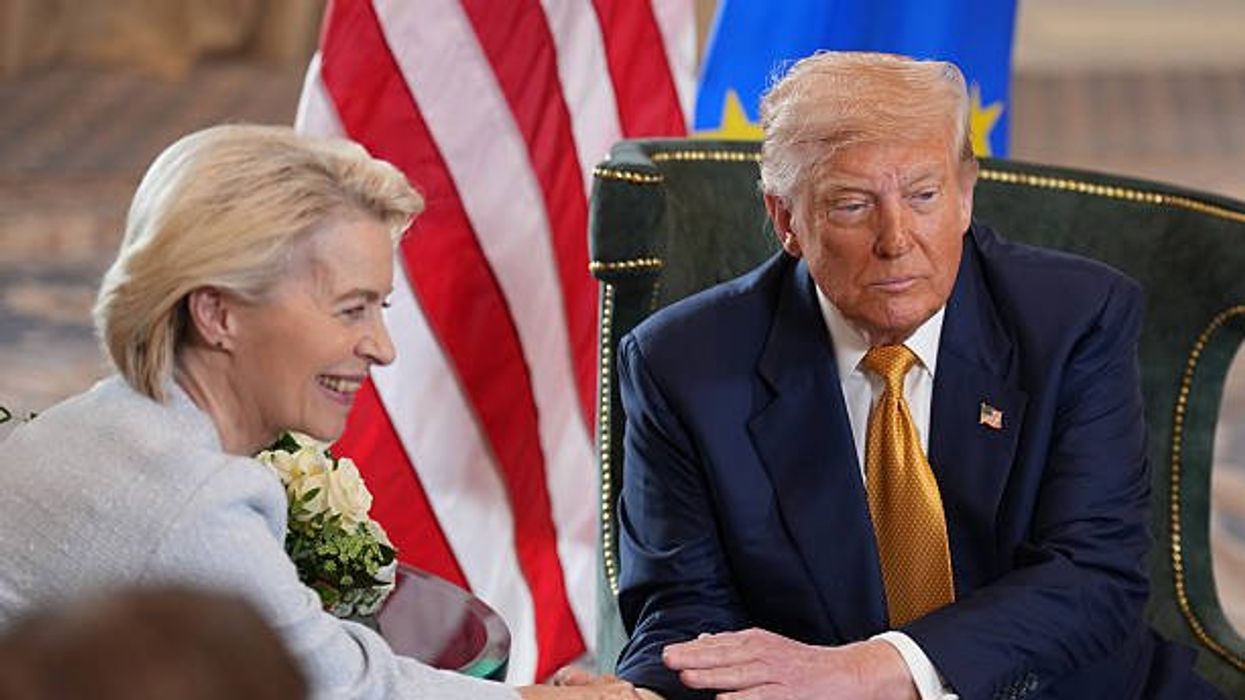SCOTLAND- President Donald Trump announced what he called the “biggest deal ever made”—a sweeping trade agreement between the United States and the European Union that resets the economic relationship between the two global giants.
“We are agreeing that the tariff straight across for automobiles and everything else will be a straight-across tariff of 15%,” Trump said.
Here’s the deal at a glance:
- 15% blanket tariff on most European goods entering the U.S., down from the previously threatened 30%
- $600 billion in EU investments into U.S. infrastructure and industries• $750 billion in EU purchases of American energy and military equipment
- No tariffs on U.S. exports to Europe, creating a one-sided tariff structure favoring American goods
Trump also said, “All of the countries will be opened up to trade with the United States at zero tariffs, and they’re agreeing to purchase a vast amount of military equipment.”
The agreement was finalized at Trump’s Turnberry golf resort in Scotland, where he met with European Commission President Ursula von der Leyen. Both leaders praised the pact for bringing “stability and predictability” to a previously tense trade relationship.
Trump’s administration had been threatening steep tariffs on EU imports starting August 1, prompting fears of a trade war. This deal averts that scenario and instead opens the door to massive European investment in U.S. energy, defense, and manufacturing sectors.
Von der Leyen acknowledged the previous imbalance in trade, noting that the EU had a $235 billion surplus with the U.S. in 2024. The new framework aims to rebalance that equation.
Von der Leyen described it as “a huge deal” that would bring “stability” and “predictability” to both sides.
While hailed as a breakthrough, the deal leaves some questions unanswered:- Steel and aluminum will still face a 50% tariff • Pharmaceuticals may be subject to future tariffs up to 200%
- EU member states must now ratify the agreement, and enforcement mechanisms remain vague
This agreement could reshape U.S.-EU economic ties for years to come.
Editor's Note: Hugo Balta is the executive editor of the Fulcrum. He is also the publisher of the Latino News Network.






















Trump & Hegseth gave Mark Kelly a huge 2028 gift